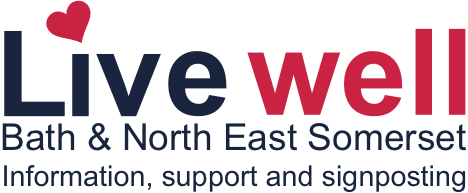Special Educational Needs Personal Budget Frequently Asked Questions
What is a personal budget?
A personal budget for SEN is money identified to pay for support specified in an Education, Health and Care plan (EHC plan) for a child, or young person up to 25 years, with special educational needs. The personal budget is allocated in recognition that the child or young person’s special educational needs cannot be met in full by mainstream/universal or targeted services without an additional individual investment being made.
What funding can be given as an SEN personal budget?
Special Educational Needs ‘top-up’ funding is agreed as part of an Education Health and Care (EHC) needs assessment or transfer with the Statutory SEN Service. The top-up funding which provides the support can be offered as an ‘indicative’ Personal Budget.
Is this additional funding?
The personal budget funding offered is not additional to funding already agreed. It is a different way of using that funding to tailor support to the needs of the child or young person, to allow more choice and flexibility of provision.
How can you use a personal budget?
- You can receive money directly to manage all or part of the Personal Budget yourself. This is called a Direct Payment.
- The local authority, school or college will look after the Personal Budget for you. This is called a Commissioned Budget.
- You can opt to have someone else to manage the Personal Budget for you. This is called a Managed Direct Payment.
- Or you can have a mixture of some or all of these arrangements.
You, or your representative, will be responsible for buying the service and paying for it.
If we don’t think the current SEND support for our child is right - how can we challenge or change it?
Any issues with the support provided can be discussed at a transfer review, an annual review or during the needs assessment process. If there are major changes to a child’s or young person’s needs a parent should request a review in the normal way. Personal budgets are not designed to address provision issues in this way.
How is a personal budget reviewed and when?
Initially the personal budget is reviewed after 6 weeks by the local authority. After that the personal budget will be reviewed at the next EHC Plan Review.
If we use a personal budget to employ someone what are our employer responsibilities?
There are lots of resources to support you as an employer:
- HM Revenue and Customs employer responsibilities
- Gov.UK guidance on employing people
- ACAS: Working for Everyone - employer guidance
What can we use a personal budget for?
Personal Budgets can be used only to fund the support set out in an EHC plan. This must be agreed by the local authority for education and care support, and by the health authority for the health provision.
A personal budget for educational provision cannot cover payment for a place at the school or college. A personal budget can include any top up funding (known as Element 3 funding). It can also include support that is managed by the school or college – but only if the Headteacher or Principal agree.
If you want to know more about using a personal budget what do we do?
In the first instance, you can raise the issue with your SEND Practitioner, who will signpost you to appropriate advice and support. You can tick the Personal Budget box on your draft EHC Plan.
To find out more you can contact the SEND Service using the contact form or call 01225 394306.
Sendias Bathnes can offer impartial information and advice through the SEND Information, Advice and Support Service. You can call them on 01225 394382 or contact them online.
How is the spending of a personal budget monitored?
In the case of direct payments, the family monitors and manages spend, producing quarterly returns to the Local Authority and HMRC where appropriate in a separate bank account. The Local Authority monitors whether the Personal Budget delivers the outcomes on the EHC Plan. Normal audit procedures will be applied.
Can a young person manage or request a Personal Budget?
From age 16, or the end of Year 11, a young person with mental capacity may request or manage a personal budget in their own right.
Last updated: 7 August 2024
